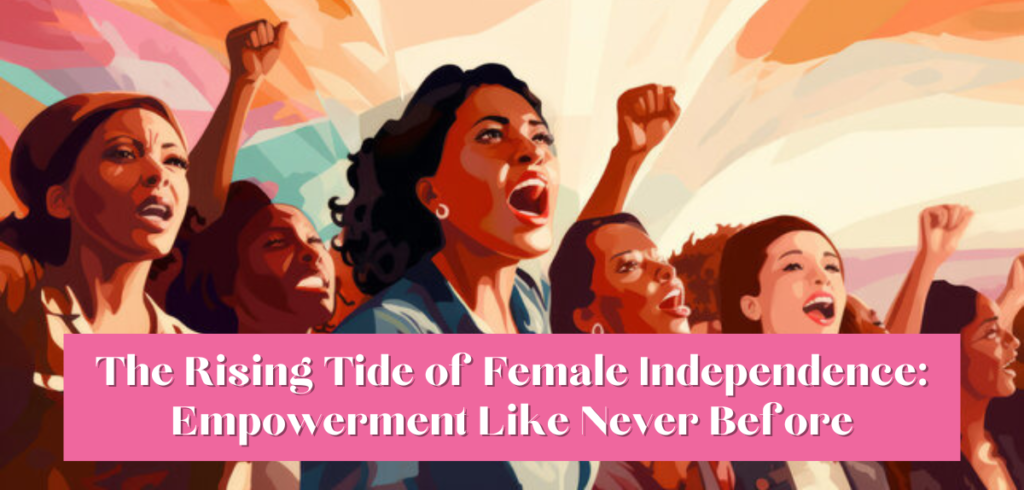Today’s women are shattering stereotypes, rewriting social conventions, and taking on leadership roles like never before. It has been a long and difficult road toward female independence, filled with setbacks, victories, and an unwavering quest for equality. Nevertheless, in spite of these obstacles, women all throughout the world are blazing their own trails, breaking down barriers, and leaving a legacy of empowerment for future generations.
The field of education has seen some of the biggest advancements in women’s emancipation. Although it has long been acknowledged as a fundamental right, many women saw access to education as an unattainable goal. Nonetheless, global initiatives to support girls’ education have resulted in a notable rise in the percentage of female literacy. The global adult female literacy rate increased from 59% in 1990 to 87% in 2021, as reported by UNESCO, demonstrating the transformational potential of education.
Using education as a springboard, women have broken through preconceptions and demonstrated their talents by entering hitherto dominated by men sectors. Women are becoming more and more talented in the STEM fields (science, technology, engineering, and mathematics), and they are significantly contributing to innovation and advancement in these domains. Women in STEM organizations and activities have been instrumental in closing the gender gap in these disciplines and inspiring young girls to follow their talents without boundaries.
Furthermore, female empowerment has been propelled by economic freedom. Not only are more women entering the workforce by choice, but also by necessity. The transition to a dual-income household has changed the dynamics of traditional families, giving women more confidence to pursue their professional aspirations and make financial decisions. In addition to promoting individual autonomy, economic independence also fosters general economic expansion and success.
Another effective path to female independence is entrepreneurship. The growth of women-owned enterprises is being driven by mentorship, resource availability, and a positive network. Women entrepreneurs are making their mark in a variety of industries, upending traditional business methods, and promoting diversity and inclusion in everything from small startups to large multinational businesses.
Technology, which offers venues for connection, cooperation, and empowerment, has been essential in promoting female freedom. Women’s voices are now more powerful because to social media, which enables them to tell their stories, support causes, and create supportive networks. Women now have more flexibility and opportunity to manage work and personal life on their own terms thanks to online platforms for freelance work and remote work.
In addition, there has been an increase in the movement for gender parity and representation in positions of leadership. Women are rising above the so-called “glass ceiling” and taking on leadership roles in a variety of fields, including business, politics, and education. There has been progress towards a more inclusive and equal society with the election of female presidents of state and administration, the appointment of female CEOs, and the acknowledgement of women leaders in numerous industries.
Another indicator of female independence is the movement in culture and society to value and respect women’s opinions and decisions. Conversations regarding consent, harassment, and gender-based violence have been sparked by movements like #MeToo, which has raised awareness and changed policies. The celebration of many identities, body kinds, and lifestyles has pushed back against conventional norms and restrictive definitions of beauty, fostering acceptance and self-determination.
The landscape of female independence is changing, and its components include education, economic empowerment, entrepreneurship, technology, leadership, and cultural changes. These are all interconnected. Even though there has unquestionably been progress, there are still issues and inequalities, especially for women who belong to marginalized and underrepresented groups. True gender equality requires intersectionality—the interconnectedness of social categories including race, class, and gender—to play a major role in discussions and policy decisions.
In summary, the growth of female independence is a complex and continuing path characterized by successes, setbacks, and unceasing advocacy. Today’s women are stronger, more resilient, and more driven than ever before, creating a world in which potential and merit define opportunity rather than gender. While we celebrate these advancements in equality, let’s not forget the work still to be done to build a more inclusive and equitable future for all.

